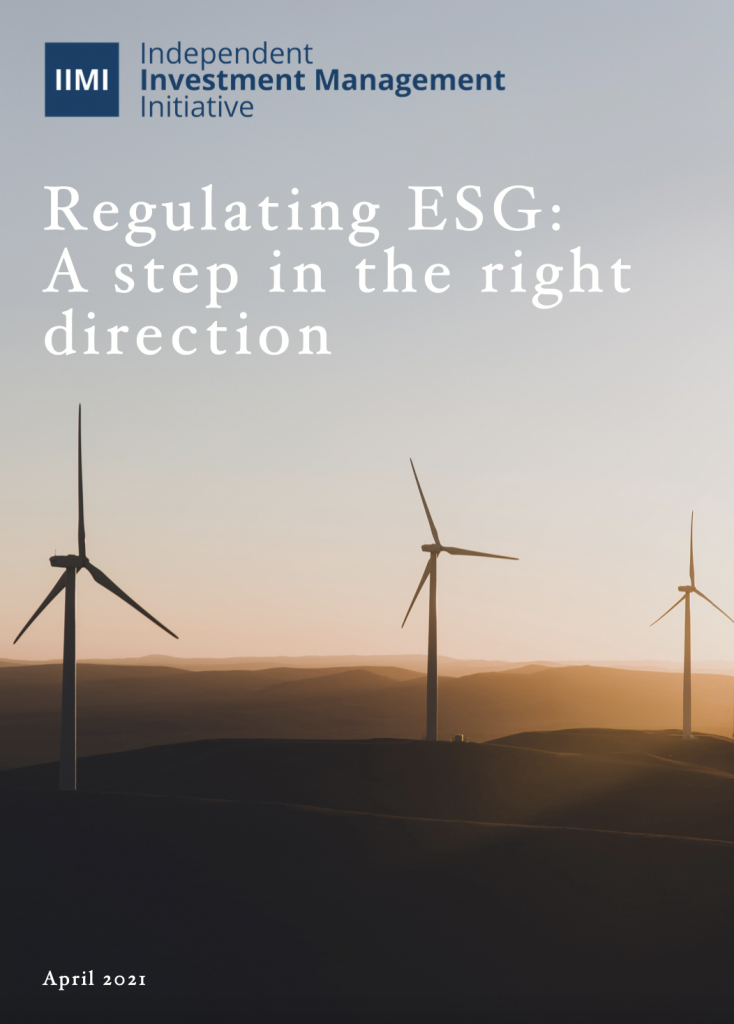
ESG (environment, social, governance) investment practices are now being fully embraced by the global asset management industry. The COVID-19 crisis has accelerated a number of pre-existing trends and the growing investor appetite for ESG is one of them. COVID-19 has served as a stark reminder to investors about just how vulnerable our planet is to disruption. In turn, this has prompted more investors to pile into ESG-focused funds. Between April and June 2020, Morningstar found that ESG funds attracted inflows totalling $71.1 billion, turbo-charging their assets under management (AUM) to above $1 trillion. Investor demand for ESG products is only expected to grow with PwC estimating that ESG funds will hold more assets than their non-ESG equivalents by as early as 2025. PwC added sustainable and responsible investment funds could control up to €7.6 trillion in Europe in the next five years, accounting for 57% of market share, versus the 15% they have today.
Key Points
- IIMI membership largely supports the SFDR, but there are concerns in some quarters that the rules could create an imbalance between boutiques and larger asset managers.
- Some member firms have called on EU regulators to cap the amount which data providers can charge for ESG research and analytics in order to create a more even playing field between boutiques and the larger investment managers.
- The ongoing uncertainties around SFDR – namely around article 8 designation – need to be clarified.
- IIMI fully supports the principles behind an ESG taxonomy insofar as that it will be vital in eliminating the risk of greenwashing.
- It is vital that ESG standards across major markets do not diverge excessively otherwise it could lead to confusion.
